Character Reference Letter Template for Immigration Court
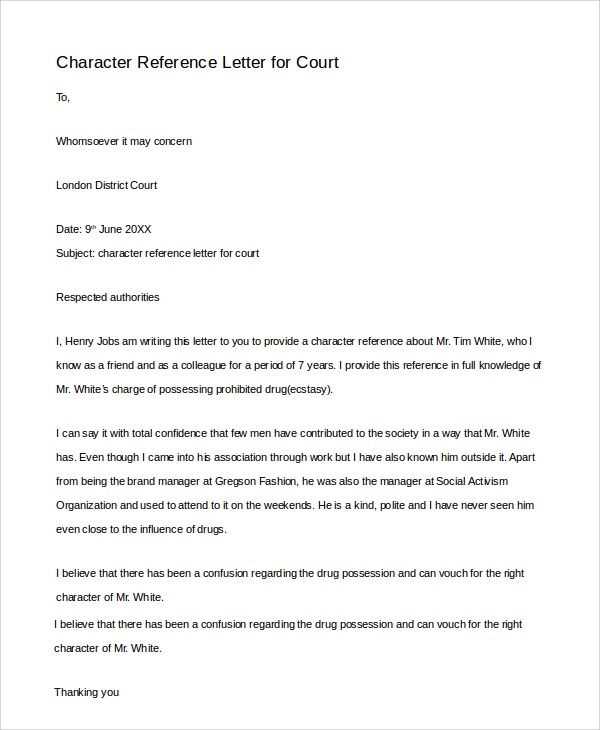
When facing legal challenges, having a well-crafted statement from someone who knows you personally can make a significant difference. These types of statements provide insight into your character and your contributions to society, which can be crucial in legal matters. They offer a unique perspective that formal documents or other evidence may not convey.
Creating an impactful support statement involves more than just a few kind words. It requires careful thought, clear structure, and relevant details that demonstrate your positive qualities. This guide will help you understand what to include, how to format it, and common pitfalls to avoid to ensure your statement leaves a lasting, positive impression.
Importance of a Support Statement

In legal proceedings, personal testimonies hold significant value. These statements, coming from individuals familiar with your life, actions, and character, provide insight that formal documents often cannot. Their role is to humanize the case and offer a deeper understanding of the person involved. This can be especially crucial when decisions are made about someone’s future.
When submitted correctly, such documents can help to demonstrate trustworthiness, reliability, and a positive impact on the community. They offer an opportunity to show that the individual is more than the legal issue at hand, helping to create a more complete picture of their character. The influence of a well-written statement can often play a pivotal role in the outcome of legal matters.
How to Structure Your Statement Effectively
To create a compelling and organized document, it is essential to follow a clear structure. A well-structured statement not only makes it easier for the reader to follow but also helps to ensure that all relevant details are conveyed in a coherent and impactful way. This format allows the message to be presented logically, maximizing its effectiveness in influencing the decision-maker.
Opening Paragraph: Introduce Yourself and Your Relationship
Start by briefly introducing yourself and explaining how you know the individual in question. It’s important to establish the context and credibility of your relationship. This section should convey how long you have known the person and the nature of your interactions, ensuring the reader understands your perspective on their character.
Main Body: Highlight Specific Qualities and Examples
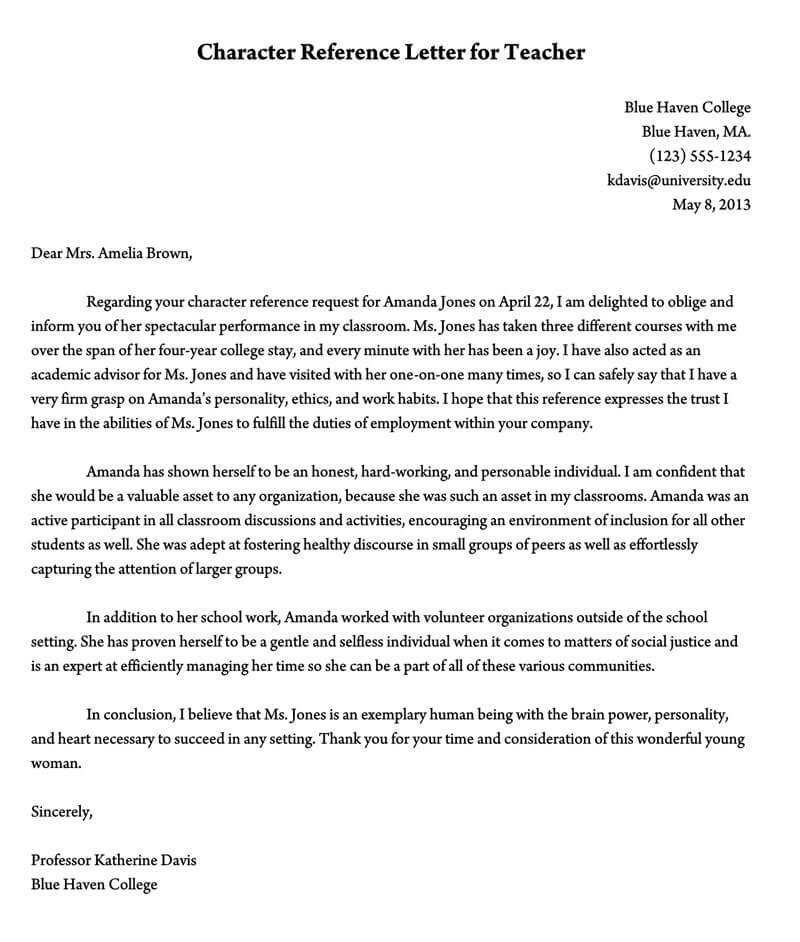
In the body of your statement, focus on the positive qualities that demonstrate the person’s integrity, trustworthiness, and contributions to society. Use specific examples and anecdotes to support your claims. The more personalized and detailed your examples, the more convincing your message will be. Avoid vague or generalized statements; instead, provide clear instances that showcase the individual’s character in real-life situations.
Key Elements to Include in the Statement
To make your document effective, it’s important to focus on key components that will strengthen the message and provide a well-rounded view of the individual. These elements should be clear and concise, each contributing to the overall narrative in a meaningful way. Highlighting relevant qualities and offering specific examples will give the statement weight and credibility.
Personal Connection and Context
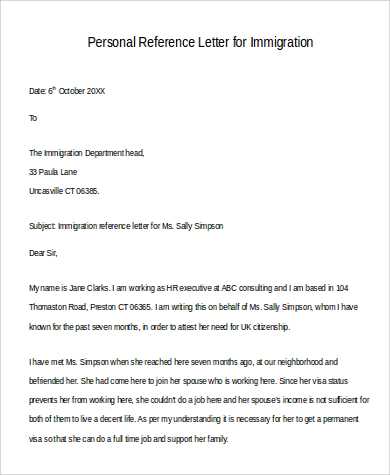
Start by establishing your relationship with the person. Explain how long you’ve known them and in what capacity. This helps to build credibility and shows that your perspective is based on substantial interaction. The more personal and direct the connection, the stronger your input will be in supporting their case.
Positive Traits and Concrete Examples
Next, emphasize the individual’s positive traits. Be specific about their integrity, work ethic, or contributions to the community. Instead of general praise, provide concrete examples that demonstrate these qualities in real-life situations. This not only strengthens your message but also gives the reader a clear picture of the person’s character.
Common Mistakes to Avoid in References
When writing a support statement, certain missteps can weaken the impact and undermine its effectiveness. Avoiding these common errors is crucial to ensuring that the message is clear, credible, and persuasive. Understanding what to avoid can make a significant difference in how the document is received and how well it serves its purpose.
Vague or Generic Statements
One of the biggest mistakes is using vague or generic phrases that lack substance. Phrases like “They are a good person” or “I’ve known them for a long time” do not provide meaningful insights. Instead, focus on specific qualities and examples that illustrate the individual’s character in detail. Concrete stories and instances are far more convincing than broad statements.
Overly Personal or Irrelevant Information
While it’s important to establish a connection with the individual, overly personal details that are not relevant to the case can distract from the message. Keep the focus on qualities that support the individual’s suitability and trustworthiness, avoiding unnecessary personal anecdotes that do not contribute to the purpose of the statement.
How to Personalize Your Statement
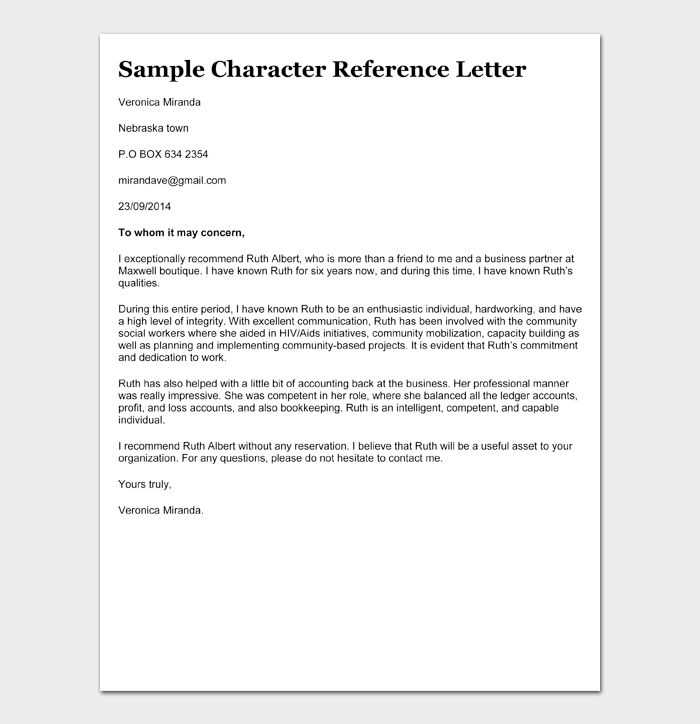
Personalizing your document is essential to making it meaningful and impactful. A personalized statement stands out by reflecting your unique connection with the individual and providing specific, relevant examples. Tailoring the message ensures that it speaks directly to the reader and highlights the individual’s strengths in a way that resonates.
| Aspect | Personalization Tips |
|---|---|
| Introduction | Clearly describe how you know the individual, how long you’ve known them, and in what context. A genuine connection sets the tone. |
| Examples | Use specific situations where the individual demonstrated trustworthiness, kindness, or other qualities. Personal stories make the message stronger. |
| Qualities | Focus on the individual’s unique characteristics that are relevant to the case, offering real-life examples of how they have positively impacted those around them. |
Impact of a Well-Written Support Statement
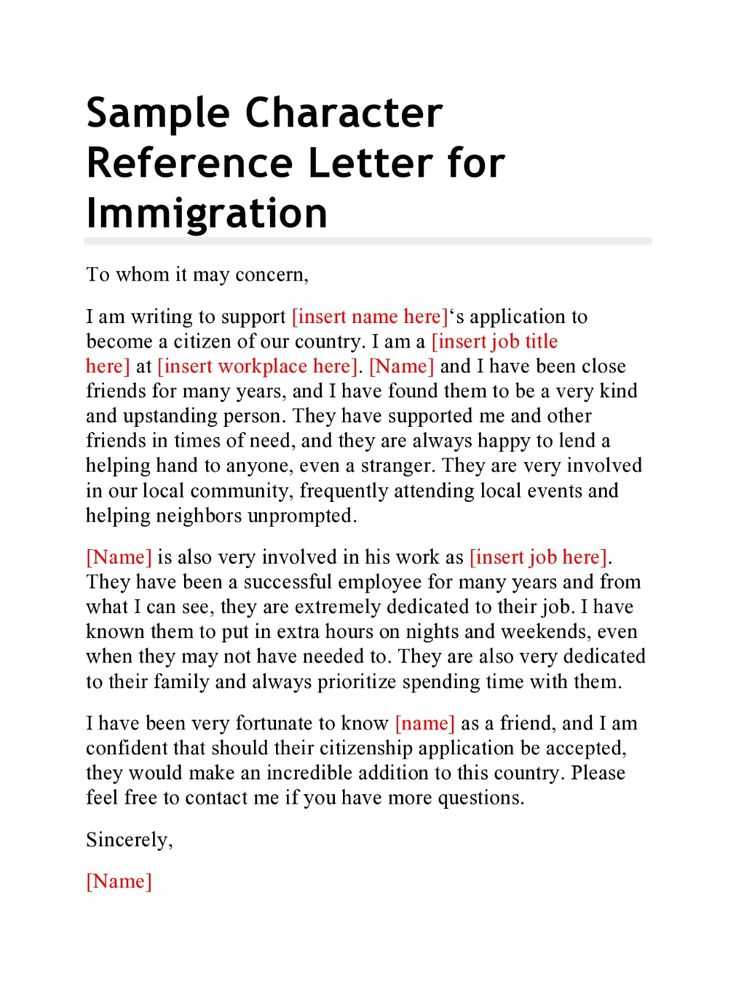
A thoughtfully composed document can have a profound influence on the decision-making process. When done correctly, it helps present a clear and accurate picture of the individual’s integrity and positive attributes. A well-crafted statement can persuade the reader by providing insight into the person’s character, ultimately strengthening their position in legal matters.
Benefits of a Strong Statement
- Increased credibility: A detailed, specific document can demonstrate that the individual is trustworthy and reliable.
- Humanizes the case: It offers a personal touch that legal documents alone may not convey.
- Supports positive attributes: A good statement highlights key qualities, showing the individual’s worth in society.
How It Influences Outcomes
A persuasive statement may influence the outcome by providing the decision-maker with a clearer understanding of the person’s life and contributions. In many cases, the impact of a personal testimony can be the deciding factor in legal proceedings, especially when decisions are subjective or discretionary.